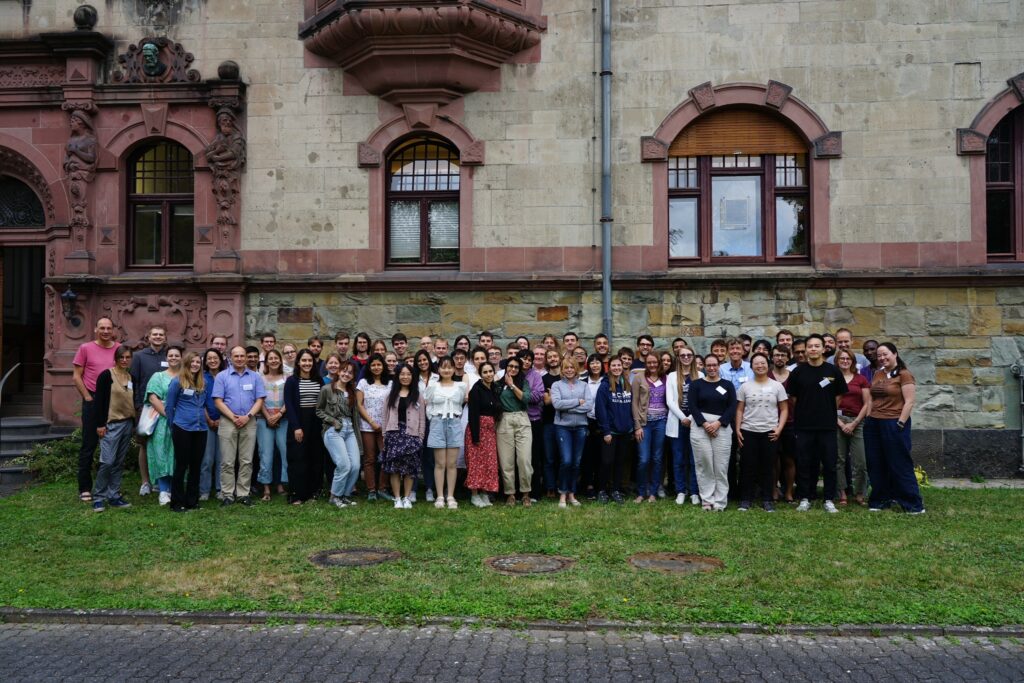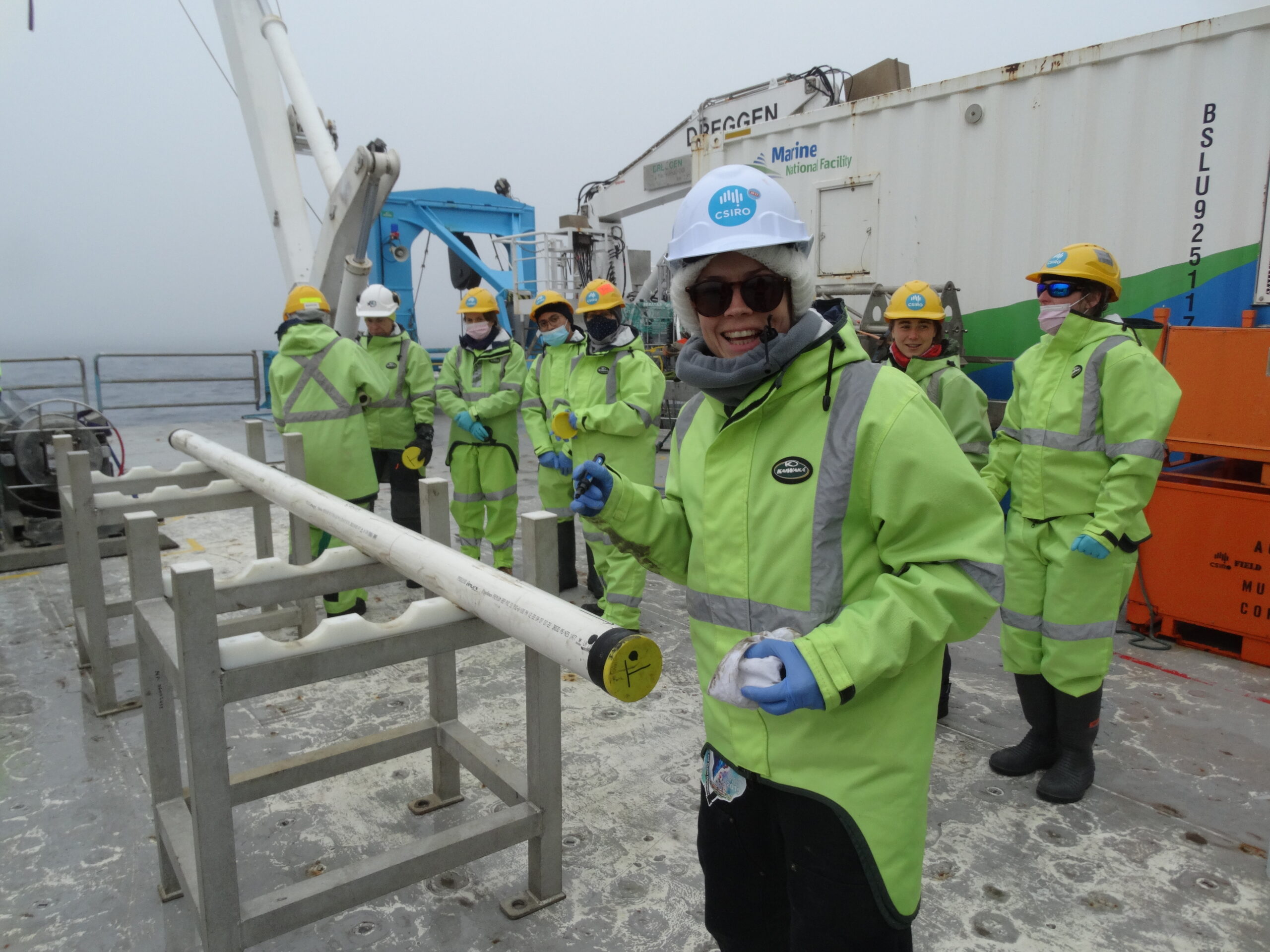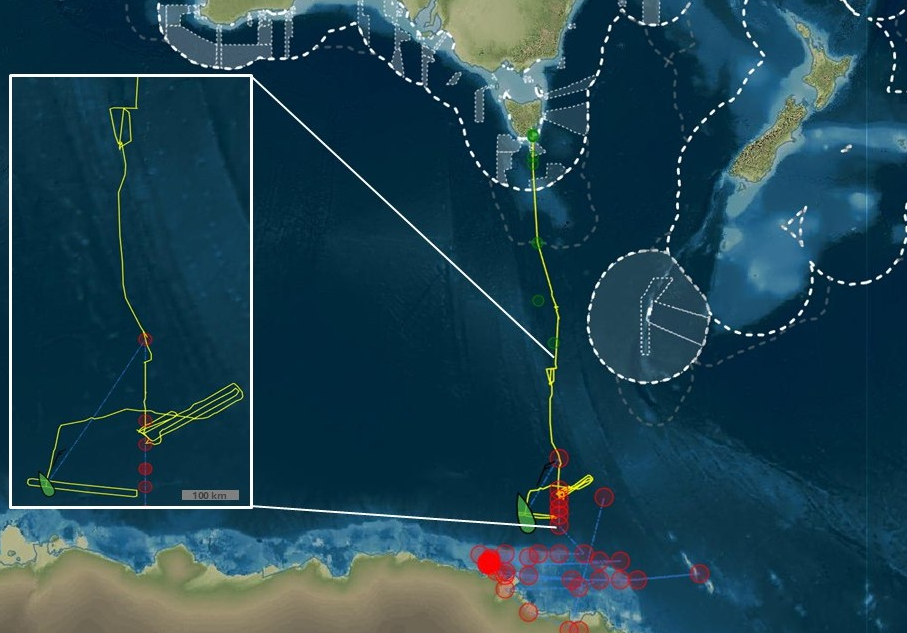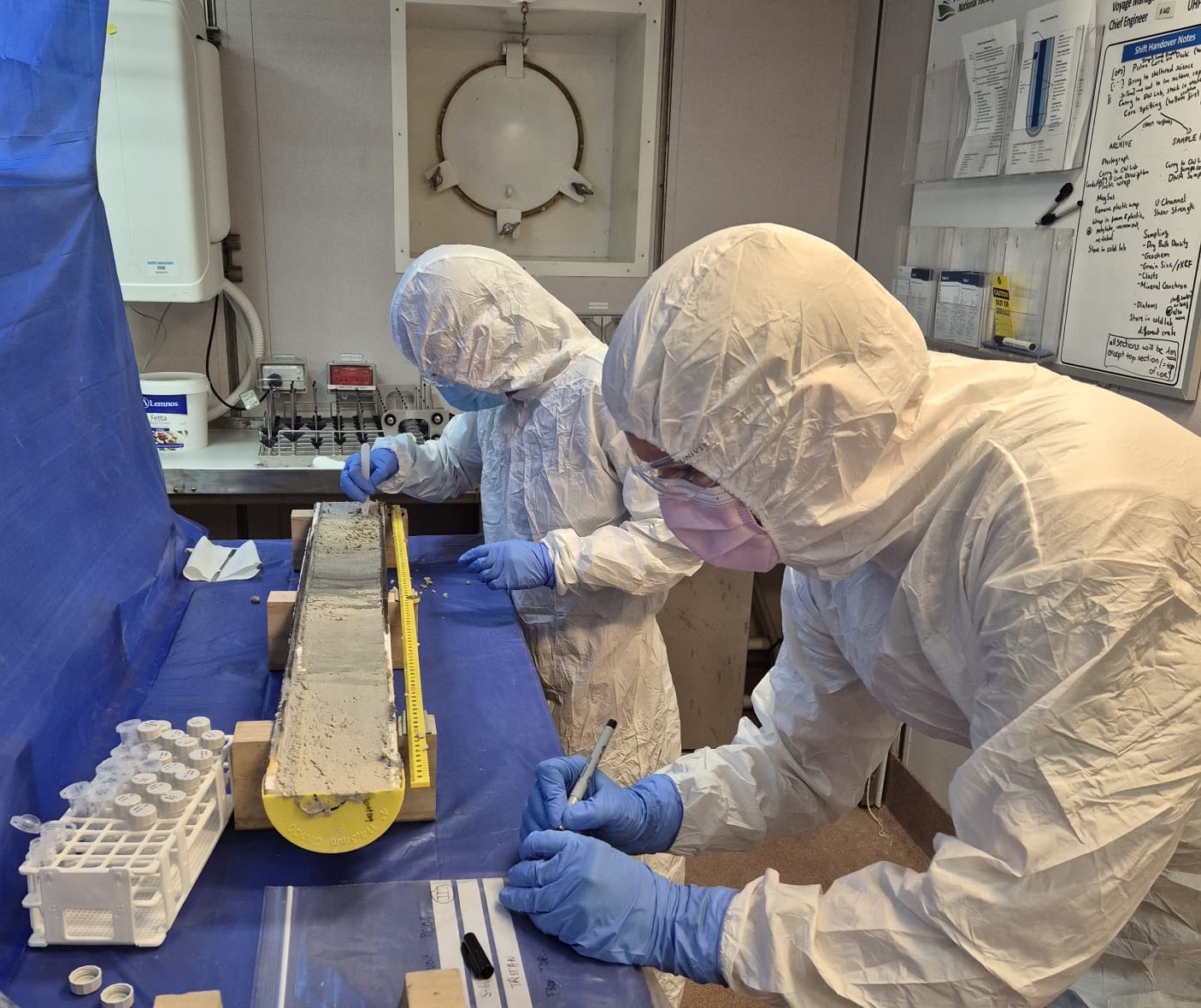Travel award takes Antarctic studies to Europe
Earlier this year, ACEAS PhD student Josef Bisits received the Michael Tallis PhD research travel award, which allowed him to attend a prestigious summer school and an international conference in July for his area of research: physical oceanography.
“Being from Australia it can be difficult to cultivate working relationships with researchers from overseas. This travel award provided me with an opportunity to meet researchers and early career scientists (PhD students and postdoctoral researchers). It was invaluable both for my PhD and future employment prospects.”— Mr Joseph Bisits.

Physics of the Ocean summer school
The Physics of the Ocean summer school is held approximately every three years. The lecturers are professors in physical oceanography from the United Kingdom and Europe. They all deliver an educational lecture, a broad overview of a general topic in physical oceanography, and a research lecture where they present their current work.
I found this combination to be especially useful as the educational lectures provided useful revision, filled gaps in my knowledge or were pitched at an appropriate level for me to extend my knowledge.
The research lectures introduced me to a range of cutting-edge research. Again, they were appropriately pitched. And, as the speakers had an hour and a half, the work was described in more detail.
I am sure that regardless of what happens during the rest of my PhD this summer school will remain a highlight.
The facilities at the Physikcentrum in Bad Honnef were exceptional, making it a perfect place to have the summer school. The Physikcentrum was large enough so everyone could have their own rooms but small enough so that at mealtimes and outside of lectures a very communal atmosphere developed. Just so my review of the summer school it is not all too glowing the food was less than exceptional and there was no chance of a reasonable cup of coffee (at least for an Australian).
The summer school is run by Martin Visbeck, Sabrina Speich and David Marshall all of whom gave lectures. The rest of the lecturers were Helen Johnson, Erik van Sabille, Arne Biastoch, Camille Lique and Eleanor Frajka-Williams. Each day we had three lectures/discussion sessions. The lectures covered a wide range of material but can broadly be split into: theory, observing systems and observational oceanography, and ocean modelling.
The lectures on the observing systems were particularly useful as the tools and methods used to collect data is not something I had much knowledge about. Though it was still the lectures on theory (particularly a lecture from Helen on ocean circulation) and ocean modelling that I enjoyed the most.
I presented a poster in a particularly engaging poster session. It was scheduled to go for one and a half hours, but ended up going for two and a half with Martin Visbeck needing to eventually turn off the lights to signal the end of the session (it finished at 10:45pm!). Everyone was very interested in understanding each other’s work.
As part of the summer school, we broke into groups and had a ‘super problem’ to work on throughout the week. The group I was in was thinking about what would happen to the Baltic Sea if the climate suddenly changed from high humidity and precipitation to dry and arid conditions. We then had to present these problems, but not in the usual sense. Instead, we were asked to creatively present them in any format we liked. Our group chose to act out what would happen to a narration of the tale of the Salty Balty. This session was extremely enjoyable and I was very impressed with what all the groups were able to achieve in the week and the level of creativity that everyone showed.
It was not all science. We had a very engaging panel discussion about scientific communication/outreach. We also took a small hike up into the neighbouring hills. This very beautiful walk also served as another place for conversation, both science and not, and was capped off by having some spectacular apple cake at a café situated at the top of the climb.
28th General Assemble of International Union of Geodesy and Geophysics
This international conference was a great opportunity to meet researchers from abroad in my field, as well as present my work to a wider audience. The conference was held at the city cube in Berlin and whilst it was a very large conference, the oceanography symposium (IAPSO, whose president is none other than Emeritus Professor Trevor McDougall) was not so large that it made it difficult to meet people.
There were also a large number of people attending who had been at the Physics of the Ocean summer school the preceding week. This, along with the people I already knew from Australia, made it a very enjoyable conference to be part of.
There were many excellent talks from which I learnt a lot. I also had a meeting with a researcher, Casamir de Leverange, who my supervisor put me in touch with. This was extremely good as Casamir immediately saw the utility of the work that we have been doing thus far in my PhD. This will likely lead to a collaboration at some point, possibly even for the third project of my PhD.
It was also great to be able to give an oral presentation at this conference. This led to meeting another PhD student who is studying in the Netherlands and focusing on the topic I presented on (isopycnal mixing). We found we had much in common and it was nice to be able to share ideas and possible future collaborations on the open-source software we both use.
Similar to the summer school it was also great to meet many scientists outside of the research arena to make new friends in the oceanography field.
Mr Josef Bisits is an ACEAS PhD student based at UNSW. He looks at the role of heat and circulation in the circum and East Antarctic.
The Michael Tallis PhD Research Travel Award is awarded to two students each year with the aim of providing international learning, research and networking opportunities for PhD candidates studying Statistics or Data Science at the UNSW School of Mathematics & Statistics. ACEAS provided some additional support for the journey.


